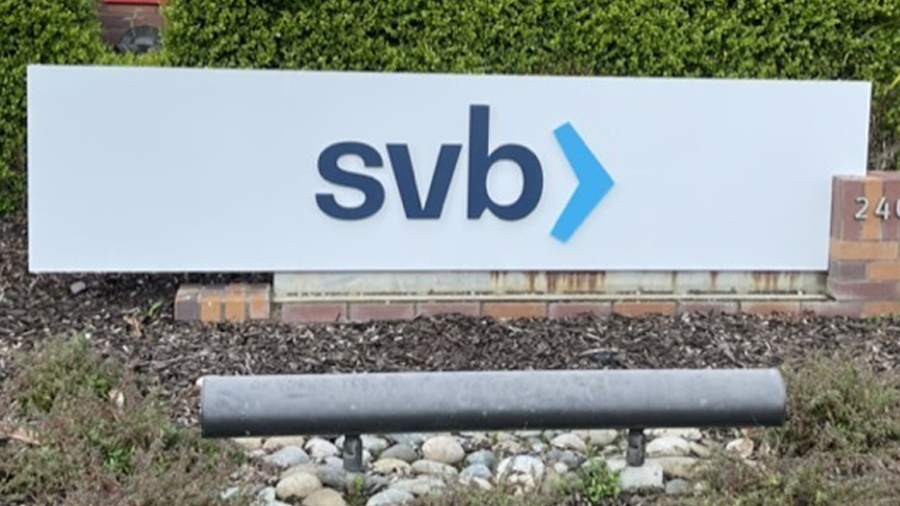Uncork Capital, one of the earliest seed-stage funds in Silicon Valley, banked exclusively with Silicon Valley Bank. On Friday, it had its 11 bank accounts frozen as news came out that the Federal Deposit Insurance Corp. had taken over the bank.
Search less. Close more.
Grow your revenue with all-in-one prospecting solutions powered by the leader in private-company data.
It was the end of a 15-plus year banking relationship with SVB for Uncork Capital.

“For the last 30 years, they have been a prime facilitator and supporter of the innovation ecosystem,” said Jeff Clavier, founder and managing partner of Uncork Capital, which was previously called Soft TechVC, via email.
“Of course, there are other banks,” said Clavier. “But no one has the deep connections that the SVB community had created over the years.”
Clavier worked to convince SVB to lend to seed-stage startups, something other banks were unlikely to do based on the risk profile of startups.

“That is one of the big reasons that a lot of tech startups were so concentrated with Silicon Valley Bank,” said Miriam Rivera, CEO and co-founder at Ulu Ventures. “They really understood a lot of this market, understand the level of risk, and are willing to make available credit to small businesses,” she said.
Before SVB’s founding in 1983, “it was difficult, if not impossible, for a start-up to secure a relationship with a large, established bank,” Sequoia Capital partner Michael Moritz wrote in the Financial Times on Sunday. “Small west coast technology companies were incomprehensible or insignificant to the large east coast banks whose customers included international airlines, heavy industry and nationwide retailers. Our companies, often started by people in their twenties, were bypassed or ignored.”
Rivera is now guiding her portfolio to engage in strong cash management and retain more than one banking partner. With less liquidity in the market, customers will become more conservative with their spend, she said.
Ulu Ventures banks with First Republic, another regional bank with strong ties to Silicon Valley whose stock was down 60% on Monday. Still, Rivera worked with SVB because 44% of Ulu’s 150 portfolio companies banked there.
‘A critical supporter’
One of the biggest concerns for startups is access to credit, which SVB supplied, Rivera said.
However, early-stage startups with less than $5 million in revenue represented a small portion, only 3%, of SVB’s loan business.
A larger proportion of SVB’s loan business — around 56% — catered to private equity and venture firms to support their capital commitments to startups, a business that was very low risk for the bank, but played a role in facilitating capital deployment for funds.
Venture firms could deploy capital quickly once they made investments in startups by using loan financing from SVB. Firms would then follow up to get that capital from their limited partners over time.
That helped to streamline the funding process, Rivera said. “We don’t necessarily have to make sure that dozens of LP checks have come in the door before we can actually wire money to a startup company,” she said.

Jenny Fielding worked with SVB as the managing director of Techstars, and more recently as a managing partner at The Fund. “SVB was a critical supporter of so many founders and investors in the ecosystem,” she said via email.
Fielding was recently a host to a women’s angel breakfast that SVB sponsored and was due to co-host an upcoming pre-seed event with SVB.
The international angle
SVB also played an important role in providing U.S. banking services to international startups looking to set up in the U.S.
SVB helped one of The Fund’s Brazilian portfolio companies open an account in the U.S. as it is not easy to set up banking without a Social Security number. The startup has since raised Series A funding, something that likely wouldn’t have happened otherwise.
Around 30% of The Fund’s portfolio companies banked with SVB. The firm also held funds with SVB for its management company that were covered by the FDIC, but not for its funds for investments.
For Clavier it was personal as well. “They were banking a lot of us personally at the SVB Private Bank, and offered essential tools like capital call lines, mortgages, etc.” he said. “Their services facilitated our professional and personal lives, and it will be hard to replace those — and the people behind them who had become dear friends after so many years of working together.”
Related reading:
- Silicon Valley Bank Stock Plunge Sends Jitters Through The Startup World
- Silicon Valley Bank Fails, Is Taken Over By Banking Regulators
- Silicon Valley Bank Collapse Leaves Tech Industry Scrambling For Answers
- Silicon Valley Bank Bet Big On Biotech. And Now It’s Gone.
- Regulators Announce Plan To Ensure SVB Depositors
- Guaranteeing SVB’s Deposits Was The Right Thing To Do
- SVB Puts Subsidiaries Up For Sale As HSBC Buys UK Unit
- Silicon Valley Bank’s Collapse Will Leave A Big Hole In the Startup World
- SVB Kept Up With Fast-Paced Health Startups. The New Normal May Be Slower
- SVB’s Demise Cools An Already Chilly Climate For Startup Funding
- SVB, Signature Shutdowns Not Chilling Crypto
Full disclosure: Gené Teare’s husband Keith Teare’s startup, SignalRank, banked with SVB.

Stay up to date with recent funding rounds, acquisitions, and more with the Crunchbase Daily.




![Illustration of a guy watering plants with a blocked hose - Global [Dom Guzman]](https://news.crunchbase.com/wp-content/uploads/quarterly-global-3-300x168.jpg)
67.1K Followers